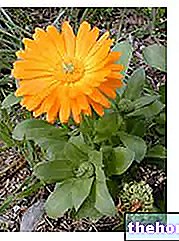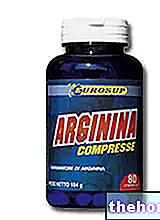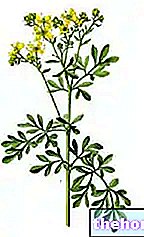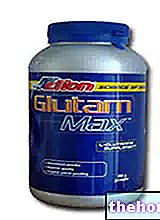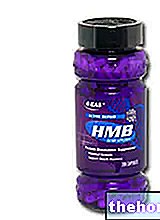There are different forms of depression, which can be partially differentiated on the different triggering causes or concurrent causes (based on organic lesions, concomitant general diseases, biological substrates such as neuromodulatory deficits, genetic and psychodynamic factors).
Depression is overt when 5 or more of the typical diagnostic symptoms are present at the same time for at least 2 weeks of observation:
- Depressed mood for most of the day, almost every day, as reported by the subject or observed by others;
- Marked decrease of interest or pleasure in all, or almost all, activities;
- Significant weight loss, in the absence of a diet, or significant weight gain, or decreased or increased appetite almost every day;
- Insomnia hypersomnia almost every day;
- Agitation or psychomotor slowing;
- Fatigue or lack of energy
- Feelings of self-deprecation, or excessive or inappropriate feelings of guilt, almost every day;
- Decreased ability to think or concentrate and difficulty making decisions
- Recurring thoughts of death, recurrent suicidal ideation without making specific plans, or a suicide attempt or making a specific plan to commit suicide.
In depression, along with sadness, lack of esteem, disinterest and lack of initiative, feelings of insecurity, a sense of unworthiness, restlessness and anxiety are often present in the subject; insomnia, decreased sexual desire, headache, dizziness, cardiovascular functional disorders are always present.
Depression is an underestimated and under-diagnosed disease, which often becomes chronic and in 50% of cases results in relapses; it is a disease that affects both sexes equally and at all ages, although the incidence is higher in the elderly.
The difficulty in diagnosing depressive syndromes lies in the objective difficulty in recognizing the symptoms as specific.
Traditional drug therapy is undoubtedly the one that is most successful in the most serious forms of depression; consequently, it is clear that phytotherapy can find undeniable difficulties in entering the therapeutic field of psychosis.
it is mainly based on psychotherapy and drug therapy, which aims to increase the amount of neurotransmitters that can be used by brain receptors (MAOI; SSRI; SNRI; NASSA ...).
In mild forms of depression (mild-moderate depression), only some plants have actually proved capable of acting on the symptoms, thus bringing a benefit to the patient: first of all the St. John's Wort, but still Griffonia, Rodiola and Panax adaptogens Ginseng and Eleutherococcus (used as a support).
These phytotherapeutic drugs, with action mechanisms attributable to the various phytochemical components or more often to the entire phytocomplex, can be prescribed and recommended at therapeutic dosages for long cycles, taking into account the drug interactions and contraindications.
For further information: Hypericum: Properties
Hypericum: Active Principles
Among the active ingredients of St. John's wort we can mention:
- Naftodiandroni (hypericin and pseudohyperericin);
- Flavonoids (hyperoside, quercitrin, isoquercitrin, rutin);
- Phloroglucine (hyperforin and adiperforin);
- Xanthones;
- Tannins;
- Essential oil.
Hypericum: Effectiveness
Hypericin is considered the main active ingredient in the treatment of depression, along with hyperforin and flavonoids.
Hypericum extracts are superior to placebo in the treatment of mild to moderate depressive states and for this indication they are as effective as conventional antidepressants.
Hypericum phytopreparate appears to inhibit the reuptake of brain amines (serotonin and noradrenaline); methanolic extracts of hypericin and hyperforin inhibited synaptosomal uptake of serotonin, noradrenaline, dopamine and GABA in vitro.
Hypericum: Indications
The therapeutic indications of St. John's wort are:
- Symptomatic treatment of depressive states of mild to moderate severity;
- External treatment of wounds, burns and ulcerations of the skin (St. John's wort oil).
The recommended daily doses (900 mg, or in any case from 600 to 1200 mg) for standardized hypericin extracts are equivalent to 0.2-2.7 mg of hypericin.
The hypericum effect occurs after 2-4 weeks of treatment (like traditional drugs).
Minor side effects, including skin rash, nausea, fatigue and restlessness, were observed in 2.4 to 7.4% of treated patients.
The use of St. John's wort is not recommended during pregnancy, the puerperium and in pediatrics.
It is necessary to avoid the use of St. John's wort at the same time as the use of other synthetic antidepressants (eg tricyclic antidepressants and SSRIs), in order not to run the risk of "serotonin syndrome".
St. John's wort is a potent inducer of the hepatic microsomal system (it induces the activity of cytochrome P450 isoenzymes), so it is not recommended to use St. John's wort when you are taking other drugs whose effectiveness it could reduce (eg cyclosporine, theophylline, benzodiazepines, coltsfoot, ritonavir, saquinavir, oral contraceptives, anticonvulsants such as carbamazepine and phenobarbital, digoxin, anti-migraines and others).
As for the photosensitivity induced by the presence of hypericin, 2 cases have been documented in men: the first in a subject who used hypericum for 3 years, while the second in a 35-year-old woman who after 4 weeks of treatment developed an unspecified neuropathy; in both cases the symptoms regressed upon discontinuation of treatment.
Other studies indicate that photosensitivity occurs at higher dosages than the recommended dose.
Among the serious side effects, resulting from the use of St. John's wort, in phytovigilance some cases of "mania" were highlighted (eg a 20-year-old patient with manic depressive psychosis - who had replaced the prescribed treatment for bipolar disorder with l " St. John's wort, at the commonly recommended dose of 90 mg / day - experienced an episode characterized by extreme agitation, irritability, anxiety and insomnia).
Watch the video
- Watch the video on youtube

